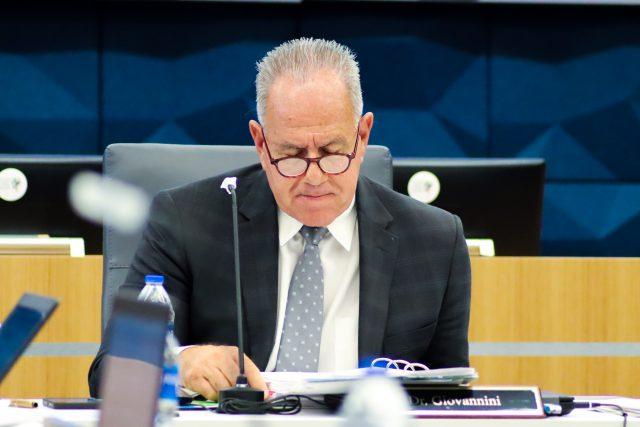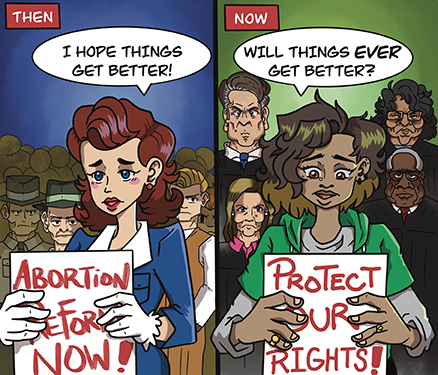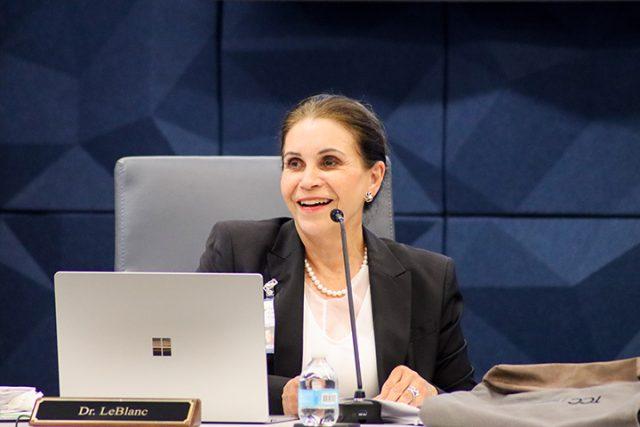José Romero
editor-in-chief
collegian.editor@tccd.edu

Photo by Alex Hoben/The Collegian
In a lawsuit filed against TCC Feb. 7, former executive vice president for advancement Kristen Bennett alleged she was wrongfully terminated for disciplining a female employee with whom Chancellor Eugene Giovannini was having an “inappropriate, personal relationship.”
Bennett is seeking monetary damages for the abuse she said she endured, lost income and attorney’s fees.
Both TCC and Bennett’s attorney Frank Hill declined to comment on the suit, which was first reported by the Fort Worth Star-Telegram Feb. 8.
“We’re not able to comment on pending litigation or personnel matters,” wrote Reginald Gates, vice chancellor for communications and external affairs, in an email.
“Neither our law firm nor our client have any comment regarding this matter at this time,” Hill’s legal assistant Christian Johnsen wrote in an email.
Bennett was employed Oct. 1, 2020, and the lawsuit says she was terminated Jan. 31. According to the lawsuit, she was chosen by Giovannini, and he initially had nothing but praise for her team’s work. The chancellor’s change in attitude toward her didn’t occur until Bennett was asked July 13 to discipline an unnamed female employee, who is described in the suit as Giovannini’s “girlfriend.”
Another employee reported that the woman told a co-worker she wanted to “choke her until her tongue comes out.” Bennett asked her to apologize and informed her she had to get along with others on the team.
After doing so, Bennett was called to Giovannini’s office Aug. 17, in which he said he was concerned about her boastful behavior in a prior meeting, the lawsuit said. She was called into his office again Aug. 30 and was told by the chancellor her contract wouldn’t be renewed. He cited “issues” as the reason but didn’t give specifics, according to the suit. Instead, he placed her on an executive development plan, another name for a personal improvement plan. In a meeting the day after, Giovannini told Bennett to only give him written reports in person to avoid having any kind of paper trail.
In September, another incident occurred with the unnamed female employee, so Bennett disciplined her again, resulting in another meeting with Giovannini. In that meeting, he was allegedly “even more hostile” toward her.
A TCC attorney approached Bennett Oct. 28 to ask if Bennett had heard rumors of an inappropriate relationship between the chancellor and Bennett’s employee. Bennett told the attorney that the employee “boasted to several people on her staff over a period of several years” about her time with Giovannini, including playing golf and going to a cigar lounge together.
The lawsuit also said TCC’s associate internal general counsel told Bennett that then board of trustees president Conrad Heede warned Giovannini about this relationship.
In November, Bennett submitted her resignation, citing the emotional toll as the reason for her wanting to leave. When news of her resignation was shared with others Nov. 19, Heede asked to meet with her Nov. 24. During this meeting, Bennett told Heede everything that was happening between her and Giovannini. Heede supported her decision to file a grievance and supported her decision to share it with Teresa Ayala and Kenneth Barr, the board of trustees’ current president and vice president.
During Thanksgiving break, Bennett changed her mind. She rescinded her resignation and submitted a grievance against Giovannini Dec. 2. During an event Dec. 8, Heede told Bennett that Ayala and Barr would meet with her to help, but that didn’t happen. The day after, Bennett was put on paid leave, which was thought to be recommended by the TCC Foundation board and board of trustees. However, the lawsuit said both boards didn’t know about this and were told Bennett left on her own. The boards were also unaware of her rescinding her resignation.
Bennett has not yet been allowed to grab her items from her desk, the lawsuit said.
“The cesspool of events described above are the direct product of the breach of trust owed by Giovannini to the District and its employees and to the tax-paying public,” the lawsuit said.































